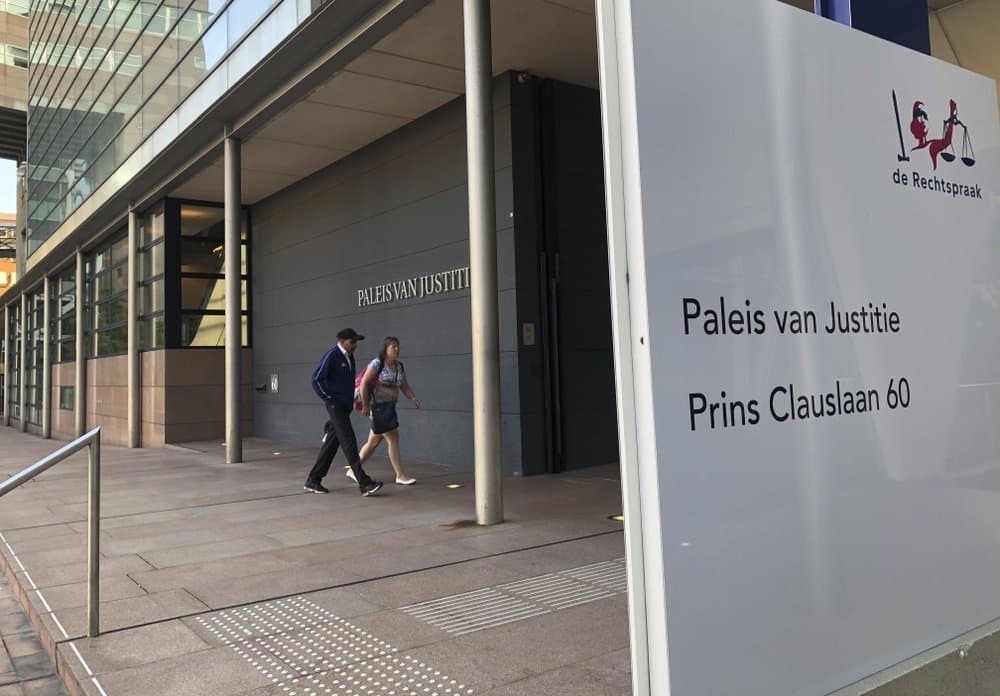The Dutch doctor who performed euthanasia on a woman suffering from severe dementia, has been acquitted of murder. The court in The Hague ruled on Sept. 11 that the doctor hasn’t broken the Dutch euthanasia law.
The trial began three weeks ago when, for the first time in Dutch history, a doctor was put on trial after performing euthanasia on a patient. Prosecutors said the 74-year-old doctor was guilty of murder.
In 2016, she performed euthanasia on a woman suffering from severe dementia. After being diagnosed with the condition, the patient had written down a living will in which she stated that she wanted to make use of the legal right to have euthanasia performed on her were she to end up in a nursing home. However, during the last days of her life, the patient gave mixed signals about wanting to die. Prosecutors stated that the now-retired doctor should have spoken with the patient about her wish to die.
The doctor has now been acquitted of breaking the Dutch euthanasia law in the landmark case. The judge ruled that the living will written by the patient four years earlier had sufficed.
Mentally competent?
In a reaction to the Dutch Catholic newspaper Katholiek Nieuwsblad Martin Buijsen, professor in health law, said that the Dutch law is hard to explain.
“Murder and homicide are punishable by law. An exception has been made for euthanasia, which is legal under certain strict requirements. After performing euthanasia, a doctor draws up a file, which is then checked by a regional commission,” he said.
In 2018, euthanasia was reported 6,000 times, 146 for a person suffering from dementia.
“144 of these patients were suffering from an early stage of dementia. Euthanasia was performed on them without any legal problems,” Buijsen said.
“In the other two cases, the patient was suffering from severe dementia. Both of them had written a living will in which they stated that they wanted euthanasia to be performed on them if they were to end up in a certain stage of the disease,” he said.
But, continued the professor, “At what point is a person no longer mentally competent? A person suffering from dementia may have lucid moments and is still able to change his or her mind. The term ‘mentally competent’ is not all white or all black.”
Official warning
The doctor on trial had already received an official warning by the Dutch medical disciplinary board. The court’s verdict doesn’t change that fact. This means doctors themselves follow stricter rules than the Dutch law prescribes.
“The verdict of the medical disciplinary board means that her colleagues think that in this case the doctor failed to do the right thing. They advised other doctors to verify with the patient if they still wish to die,” Buijsen said.
According to Buijsen, the whole trial has always been a matter of principle, and also a test case.
“Prosecutors asked the judge to come up with a verdict but were not seeking punishment for the doctor. What they wanted was for the court to stipulate clearer boundaries for the euthanasia law. The judge ruled that there is no legal duty for an extra living will to be written by the patient. This means the uncertainty remains, because in practice nothing has changed with this verdict,” he said.
A morally impossible thing to ask
“The euthanasia law dates back to 2002 and was meant, for example, for cancer patients or patients affected by ALS who were in excruciating pain with no hope of ever recovering. The current law was not made with dementia in mind. The Dutch federation of medical practitioners is working on a declaration for euthanasia in cases of dementia, with clearer standards for doctors,” Buijsen said.
According to the professor, the current euthanasia law is making it impossible for doctors to function well.
“The patient places his or her faith in the doctor’s hands. The doctor then needs to decide if a patient is allowed to die, not too early in the disease process, but not too late either. Think what we’re asking of our doctors. It is a morally impossible thing to ask.”
This article was translated for Crux by Susanne Kurstjens-van den Berk.
Crux is dedicated to smart, wired and independent reporting on the Vatican and worldwide Catholic Church. That kind of reporting doesn’t come cheap, and we need your support. You can help Crux by giving a small amount monthly, or with a onetime gift. Please remember, Crux is a for-profit organization, so contributions are not tax-deductible.











